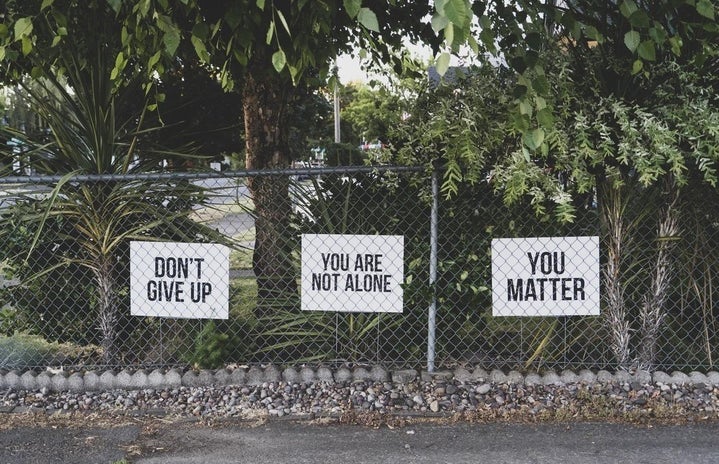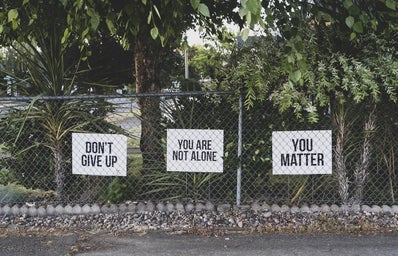In recognition of National Eating Disorder Awareness Week, Isabel has written an article discussing Eating Disorders and how they are prompted in our body-weight obsessive society. Helplines and awareness campaigns/Instagrams are listed below.
TW: discussions of eating disorders, binge-eating and bulimic tendencies.
He didn’t think skipping breakfast was that bad if ‘everyone did it’, whilst his hunger distracted him all day.
She thought one meal a day was sufficient enough for a young woman, whilst she fainted walking upstairs.
He felt better when other people complimented his weight loss, whilst he made himself throw up the extra apple he had that day.
She got excited when she had to buy smaller clothes to fit her new body, whilst her period had now stopped completely.
He was pleased when he looked down on the scales and the number was decreasing, whilst his hair was falling out in clumps every time he showered.
She felt a sense of achievement for the frequent doctor appointments, whilst her body started to shut down.
They lay in the hospital bed, finally realising they had gone too far.
When did “I’m Fine” become deadly?
The theme for this year’s ED awareness week is ‘Everyone has a seat at the table’, but what if I don’t want a seat at a table that harms me?
It’s 2021 and there has been a recorded 3.4 million people in the UK that suffer from an Eating Disorder, with young, white women being stereotyped as the main sufferers. But this isn’t the case. Eating disorders will affect any age, gender or race. They aren’t size disorders or disorders of shape or weight. They impact ALL body types.
It takes the form of the elderly lady picking the lowest calorie ready-meal for her ‘weekend treat’, to the 20 something-year-old boy who is deemed a ‘healthy weight’ by doctors but binge eats every night, to the pregnant lady who has to stop herself from making herself sick after eating in fear of damaging her unborn baby.
It won’t stop until it’s too late. It is relentless.
Social media is definitely playing its part in romanticising diet cultures and promoting eating disorders. Imagine your 12-year-old self watching someone’s, ‘what I eat in a day’ on TikTok: a run in the morning, a side salad for lunch, and a plate of vegetables for supper. Video after video after video. Can you imagine how influential and damaging that would be if you watched that now? Let alone at such a young age. I think it also stems from the concept of photoshop, and how it morphs not only the user but the viewer giving an unrealistic portrayal of ‘ideal’ body type.
Yes, it can start out as a harmless intention, but eating disorders have the tendency to be pathologically comparative so we’ll automatically compare our bodies, meals, portions, and exercise regime with yours. It becomes fuel for the ED and is an all-consuming, endless cycle that triggers other mental health problems such as body dysmorphia, anxiety, and depression.
I think what isn’t talked about as much are Binge-Eating Disorders and Bulimia. The tight control an ED has on your life is all-consuming, but what happens when the glass starts to crack? As the control starts to unravel, it can lead to complete blind panic. Your mind is on overdrive and you feel so powerless as you keep going until you physically cannot eat anymore.
Sneaking to the kitchen when everyone is asleep to eat more than your day’s intake.
Restricting what you eat during the day because you’ll feel the pull of the binge coming on in the evening.
Hiding the evidence as the anxiety rises at being caught.
Running the shower so nobody can hear you make yourself sick.
Buying laxatives and consuming at a rate that destroys your body’s metabolism.
It can be either pre-mediated or uncontrollable, and the smallest things can trigger it; when we are unable to cope with our feelings we turn to food for short-term relief. Yet what we are inevitably met with after is a mountain of guilt, embarrassment and shame for what has happened and who we have become.
When food is the only thing on your mind, a barrier is created that ultimately limits your life; what was originally a diet to control your weight has turned into a severe ED with a plethora of unintended consequences. You can’t be present with people, you can’t concentrate at work, you can’t eat meals cooked by loved ones, you can’t let a day go by unless you’ve weighed yourself at least three times, you develop insomnia… the list goes on. The constant thoughts in your head of “I have to fully restrict today because I binged bad last night”, “I can’t have breakfast, look at how fat my legs look”, “My friends say I look thin, I have to keep this up and not eat today” is repeatedly playing like a broken record, from the moment you wake to the moment you sleep.
The bottom line is eating disorders kill; they have the highest mortality rate among all psychiatric disorders. And if you’re sitting behind your screen right now ‘happily’ drinking your 2 pm black coffee as your first meal, it isn’t the strongest façade. Especially when 6 months later you are struggling to even stand up to make said coffee without blacking out. Being thin ≠ being happy.
If you are struggling with eating and are looking for help, or know someone that is, please please please reach out. It could be the best thing you ever do.
Websites:
Instagram:



